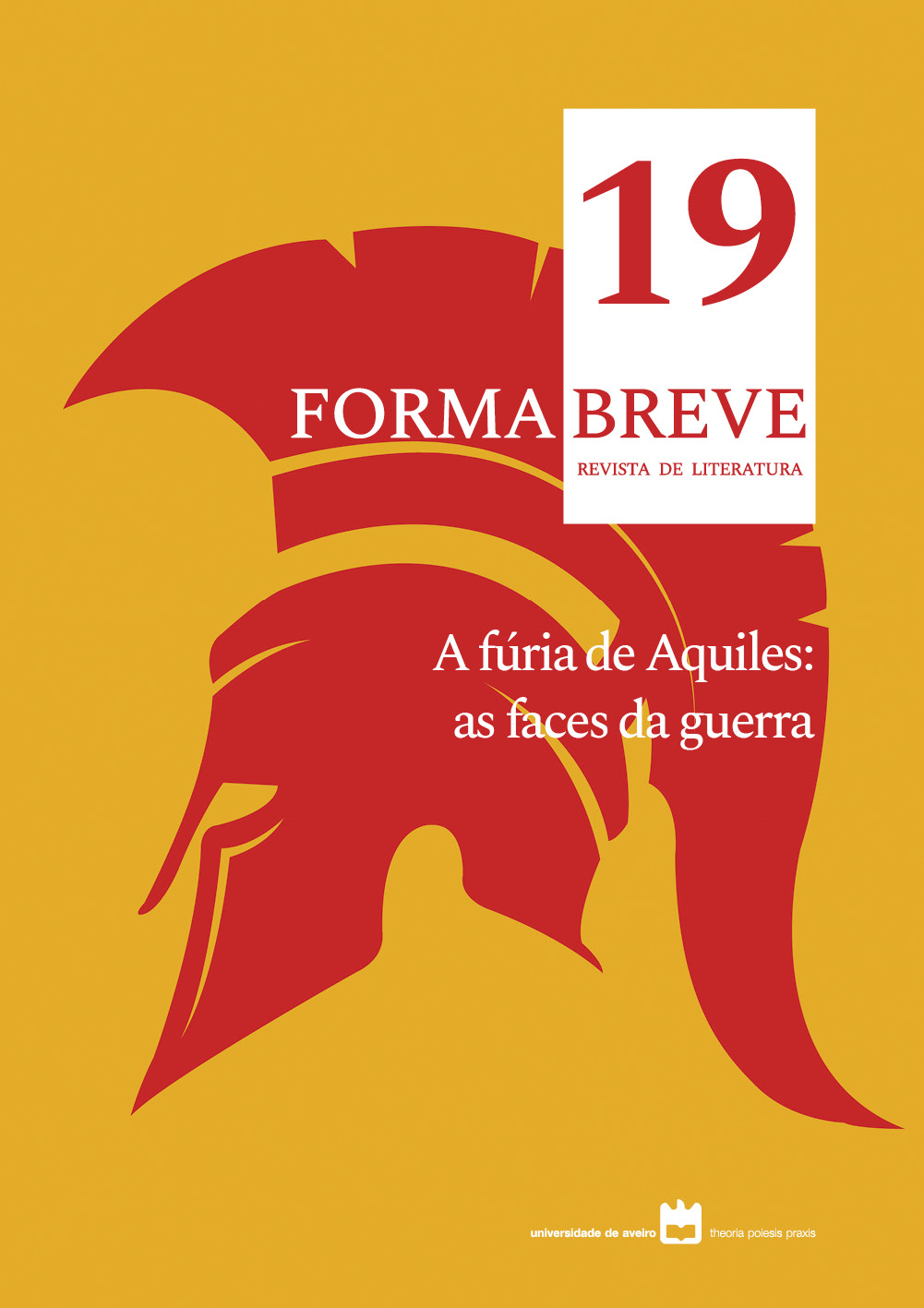O que Leonor Lopez deixou de dizer
Resumo
A Tamalogia - o estudo da morte - encontra terreno fértil para pesquisas na Idade Média, dada a precariedade da vida devido à guerra, às doenças e ao conhecimento rudimentar da medicina. Muito mais do que a contagem e recontagem de cavaleiros mortos, e de mulheres e crianças que morreram durante o parto, o foco nos detalhes da morte numa riqueza de géneros, desde épicos a crónicas, a autobiografias e relatos espirituais é muito revelador das expetativas, emoções e valores simbólicos da morte e do morrer. As “Memórias” de Leonor López de Córdoba são um documento convincentemente enigmático escrito por um autora politicamente influente que reflete a precariedade da sua vida.
Downloads
Referências
Ayerbe-Chaux, R. (1977). Las Memorias de doña Leonor López de Córdoba. Journal of Hispanic Philology, 2, 11-13.
De Andrés, C. (2005). Resilience and Survival in Leonor López de Córdoba’s Writing. In Women
In Spanish and Portuguese Studies Annual Conference, 1-30.
Death Studies. Journal of the Thanatology Association. Washington D.C.: Taylor and Francis. http://tandf.co.uk.
Deyermond, A. (2012). Historia de la literatura española medieval. Barcelona: Ariel.
Ghassemi, R. (1989-1990). La ‘crueldad de los vencidos’: Un estudio interpretativo de Las Memorias de Leonor López de Córdoba. La Corónica, 18(1), 19-32.
Hutchenson, G. S. (2001). Leonor López de Córdoba and the Configuration of Female-Female Desire. In Ed. F. Canadé, & P. Sheingorn (Eds.), Same Sex Love and Desire Among Women in the Middle Ages. New York: Palgrave.
Kaminsky, K. (1995). Water Lilies-Flores del agua. Minneapolis: University of Minnesota Press.
Kaminsky, K., & Dorough, E. (1984). To Restore Honor and Fortune: The Autobiography of Leonor López de Córdoba. In D. Stanton (Ed.), The Female Autograph (pp. 70-84). New York: New York Library Forum.
Lacarra, M. J. (2007). Género y recepción de Las Memorias de Leonor López de Córdoba (1362/1363-1430). Actas del XI Congreso Internacional de la Asociación Hispánica de Literatura Medieval (pp. 731-741). León: Universidad de León.
Mirrer, L. (1991). Leonor López de Córdoba and the Poetics of Women’s Autobiography. Mester, 20(2), 9-18.
Nussbaum, F. (1995). The Autobiographical Subject: Gender and Ideology in Eighteenth-Century
England. Baltimore: Johns Hopkins University Press.
Piera, M. (2019). Es verdad lo que vi y pasó por mi: Leonor López de Córdoba’s Chronicle of Truth. In Women Readers and Writers in Medieval Iberia. Spinning the Text (pp. 227-764, 246). Leiden: Brill.
Rodríguez, O. P. (2014). ‘Por mi señora, la reina Catalina’: Las donaciones de Leonor López de Córdoba al monasterio cordobés de San Pablo (1409). In I. Beceiro Pita, Poder, piedad y devoción: Castilla y su entorno (siglos XII-XV) (pp. 189-226). Madrid: Sílex, D.L.
Severin, D. (1996). A Letter of Complaint from Fernando de Antequera about Leonor López de Córdoba in PN2. In A. M. Collera, & V. Roncero (Eds.). ‘Nunca fue pena mayor’: Estudios de literatura española en homenaje a Brian Dutton (pp. 636-144.). Cuenca: Universidad de Castilla-La Mancha.
Warner, B. H. III. (2010). Centers of Marginality in Fifteenth-Century Castile: Critical Reevaluations of Enrique IV of Trastámara, Leonor López de Córdoba, and Alfonso de Cartagena. Ph.D. Diss. University of Georgia.
Direitos de Autor (c) 2023 Marina S. Brownlee

Este trabalho está licenciado com uma Licença Creative Commons - Atribuição 4.0 Internacional.








